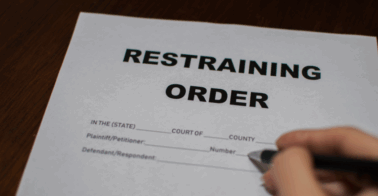Injunctions and Injunction Bonds Explained


Injunctions and Injunction Bonds Explained
What happens when a civil case involving preservation of a park is underway in court but the development company is about to start clearing trees? The court could issue an injunction order. Here’s how injunctions—and their associated bonds—work.
What Exactly Is An Injunction?
Though injunction may sound complex, the legal explanation and use is quite straightforward. As Trembly Law explains:
An injunction is a court order delivered in a civil trial or suit. This court order stops the defendant from pursuing a certain activity. This can include constructing a new building, pursuing a business venture, or making transactions that are harmful to the plaintiff. A person who fails to comply with an injunction may find themselves in contempt of court, which can lead to fines or even jail time in the worst case.
Most often, there must be a showing of irreparable harm if the injunction is not implemented. This means that an injunction is the only thing standing between the plaintiff and substantial (usually) financial harm.
Injunctive relief usually takes one of three forms: temporary restraining order (TRO), preliminary injunction, and permanent injunction. As their modifying terms imply, each has a different level of the time commitment involved.
Frequently, injunctions are used when monetary solutions are insufficient in the face of the potential damage or harm in question. For example, an injunction could cease the illegal dumping of waste materials, even as restitution or financial penalties are assessed.
What Are Injunction Bonds?
Typically, when issuing an injunction order, courts require the plaintiff to secure an injunction bond (also referred to as a TRO bond). This is a type of surety bond.
An injunction bond obligates the plaintiff to pay court costs and damages sustained by the defendant if the injunction is ultimately found unnecessary by the court. The amount of the injunction bond is set by the court, along with the deadline for securing the bond.
Colonial Surety Company , a leading, national provider of surety bonds, offers an efficient, direct and digital way to obtain an Injunction/TRO Bond. Colonial makes it simple to obtain your bond: get a quote online; fill out your information; and, enter your payment method. Print or e-file the bond from anywhere—even the courthouse.
Obtain an Injunction/TRO Bond Here.
What If There Is An Appeal?
State laws specify how injunction orders are to be used, and generally also cover the usage of injunction bonds. In the case of an appeal, appellate courts can find that a trial court failed to follow the pertinent laws governing injunctions. Recently, for example, the Fourth District Court of Appeal in Florida issued such an opinion.
In a case involving damage in a condominium unit, the trial court had ordered a temporary injunction in favor of the unit’s owner. However, the condominium associate appealed. The appellate court found that state law had not been adequately followed, as detailed in the opinion:
The temporary injunction does not sufficiently specify the factual reasons for its entry or describe in reasonable detail the actions required to comply with the injunction. The temporary injunction also fails to require the posting of a bond. For those reasons, we reverse the trial court and remand for further proceedings.
Appealing To Lawyers Across the Country
It’s a new year—how about getting a new national partner to help you save time whenever court or fiduciary bonds are needed?
Colonial Surety Company’s Partnership Account is a free, fully digital, business service that provides attorneys with a user-friendly client management system and dashboards. Coordinate, view, complete and e-file the court and fiduciary bonds clients need—all from Colonial’s innovative online platform.
Why spend 2021 shuffling around to secure court or fiduciary bonds the old way? Colonial Surety Company’s direct, fully digital, user-friendly system reduces the time, hassle and expense typically associated with antiquated processes.
Increase your efficiency—and lower costs for clients with Colonial Surety Company’s direct, fully digital, user-friendly system. See for yourself and sign up today: Partnership Account for Attorneys.
Founded in 1930, Colonial Surety Company is a direct seller and writer of surety bonds and insurance products. Colonial is rated “A Excellent” by A.M. Best Company, U.S. Treasury listed, and licensed for business everywhere in the USA.

